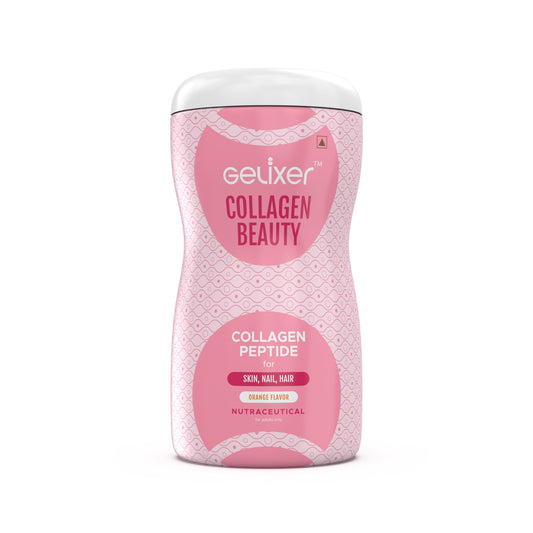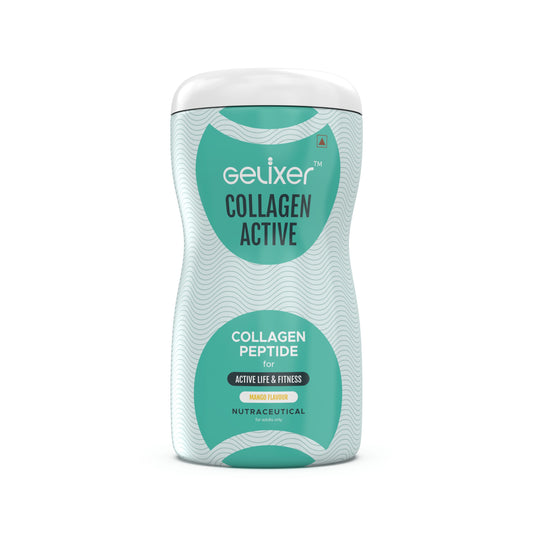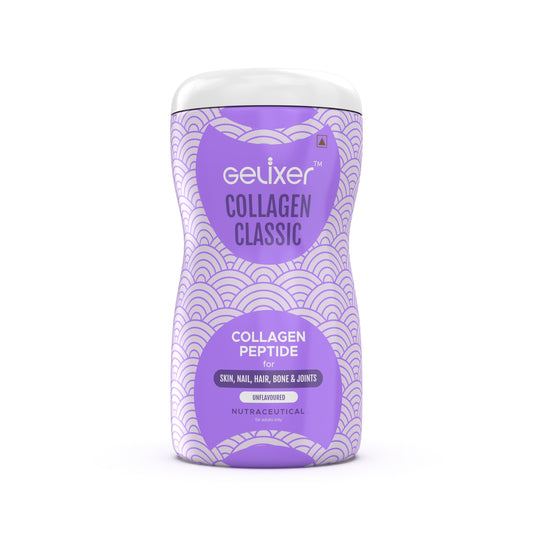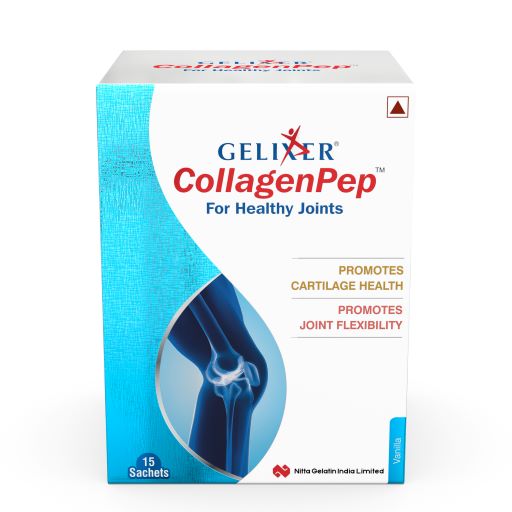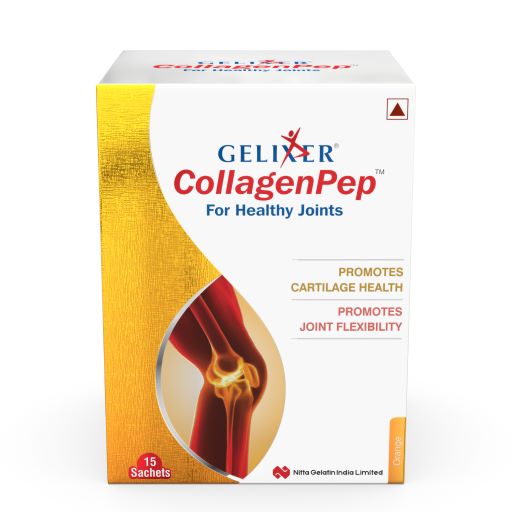
Gelixer Collagen - Everything you need to know
COLLAGEN IN OUR BODY
What is Collagen?
Collagen is a protein. It is one of the major constituent elements in the makeup of the human body. By weight ratio, the human body is roughly made up of 60% water, 20% proteins and 15% fats with the remainder being various minerals. Of the protein content, collagen accounts for about 30%.
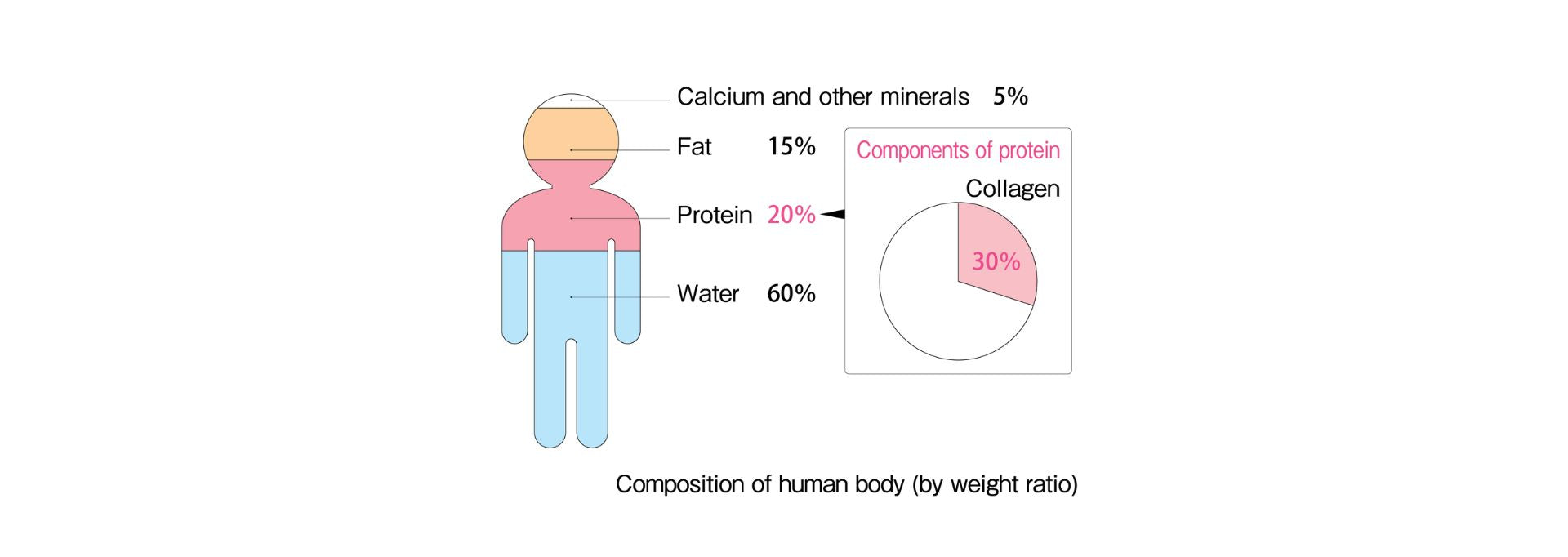
So, where in the body is collagen mostly found? About 40% of collagen is present in the skin, about 10-20% in bones and cartilage, and the remainder is distributed in blood vessels and internal organs. In a nutshell, collagen plays a foundational role in our body.
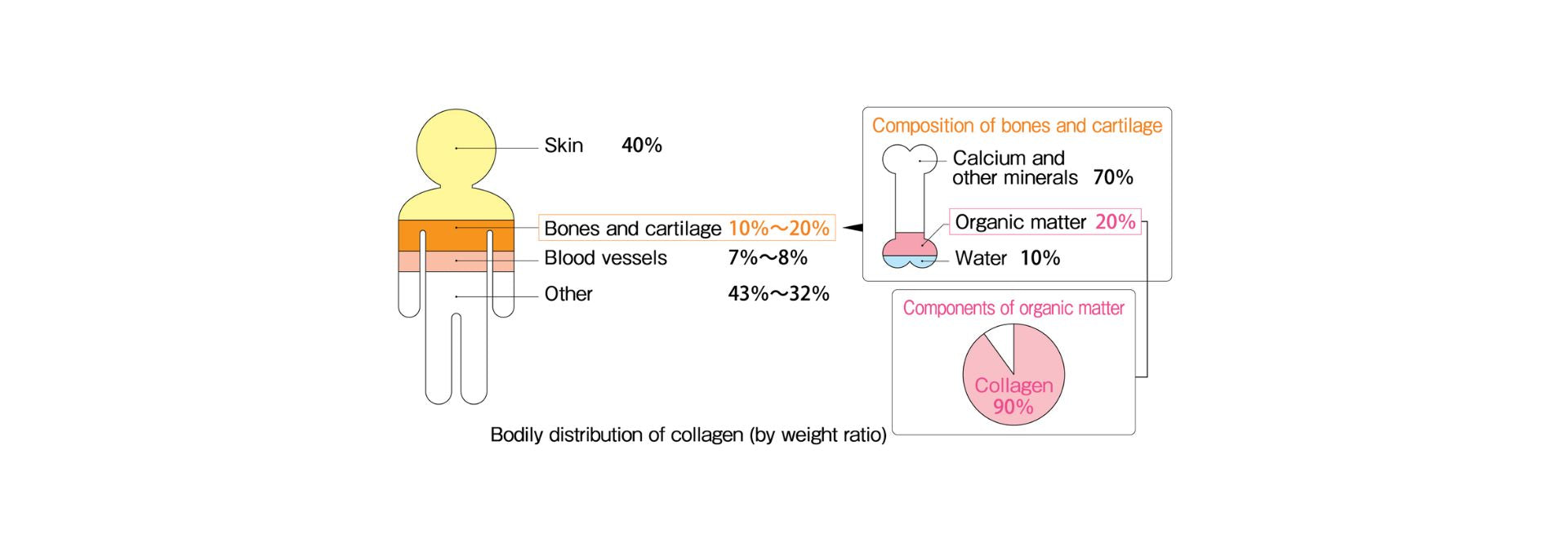
Roles of Collagen
Collagen plays important role in connecting cells, supporting them, and creating external extremities. Collagen is found throughout supporting tissues, which act to support and interconnect other tissues within the body. In other words, we can thank collagen for the structural framework of our bodies.

STAYING YOUTHFUL WITH COLLAGEN PEPTIDE
Collagen arrives at a crossroads when you turn 20. Collagen increases as we are growing up and our bone structure and muscles are developing. It peaks at around age 20. As the cycle of collagen metabolism lengthens due to ageing, collagen’s “power to support the body from within” dwindles; by the time some problem surfaces in the form of pain, etc., collagen decay has reached a serious level.
Fighting ageing with Collagen Peptide
Oxidation and glycation have much to do with the ageing of the entire body. On the outside, we see such symptoms as skin and hair problems, while symptoms of internal organs called metabolic syndrome and bone and joint problems are among the motor organ issues. These functional declines in the locomotor apparatus, namely locomotive syndrome– or as they are often called in Japanese, “lokomo” – are becoming an increasingly larger issue. If you want to slow the onset of ageing effects, one very important step you can take is to reconsider your lifestyle. You may also find it necessary to obtain outside sources of collagen peptides in the form of health foods.

HOW COLLAGEN WORKS ON YOUR SKIN
Skin tissues and Collagen
Collagen makes up about 70% of the dermis, which lies inside the epidermis. The dermis has a network of resilient fibres such as collagen and elastin stretching around, with hyaluronic acid contained between them. The combination of all of them makes your skin firm.
Results of research
Studies have found that continuous intake of collagen peptides at 5 gm a day for 4 weeks or longer increases the amount of moisture in the skin and improves its resilience. This suggests that collagen peptides can help keep your skin moist and firm.
Meanwhile, other studies have shown that “hidden blemishes” arising from ultraviolet ray damage can be mitigated through the intake of collagen peptides. This also indicates that collagen peptide works on the skin at a cellular level, and helps to repair skin damage.

HOW COLLAGEN WORKS ON YOUR BONES
Structure of bones and Collagen
Collagen is also found primarily in cortical and spongy bone, making up some 20% of bone, which contributes to the stretching out of a network of resilient tissues. Not only does collagen act as the skeleton of the structure, but it also creates resilient tissues to make bones flexible. When considering Osteoporosis, we tend to think of reduced “bone density” as the cause. But, recently, it has become clear that bone quality also has much to do with the onset of this condition, and this is where collagen matters.

Bone metabolism
Metabolism of bones involves two kinds of cells: Osteoclasts and Osteoblasts. While osteoclasts break up old bones, osteoblasts produce proteins, including collagen, as the foundation for new bones that are currently being created. However, as we age, bone comes to have bad cross-links that are hard to break up, thereby hindering efficient metabolism. Recent studies suggest that collagen peptides play an important part in the improvement of bone quality, as well as bone density.
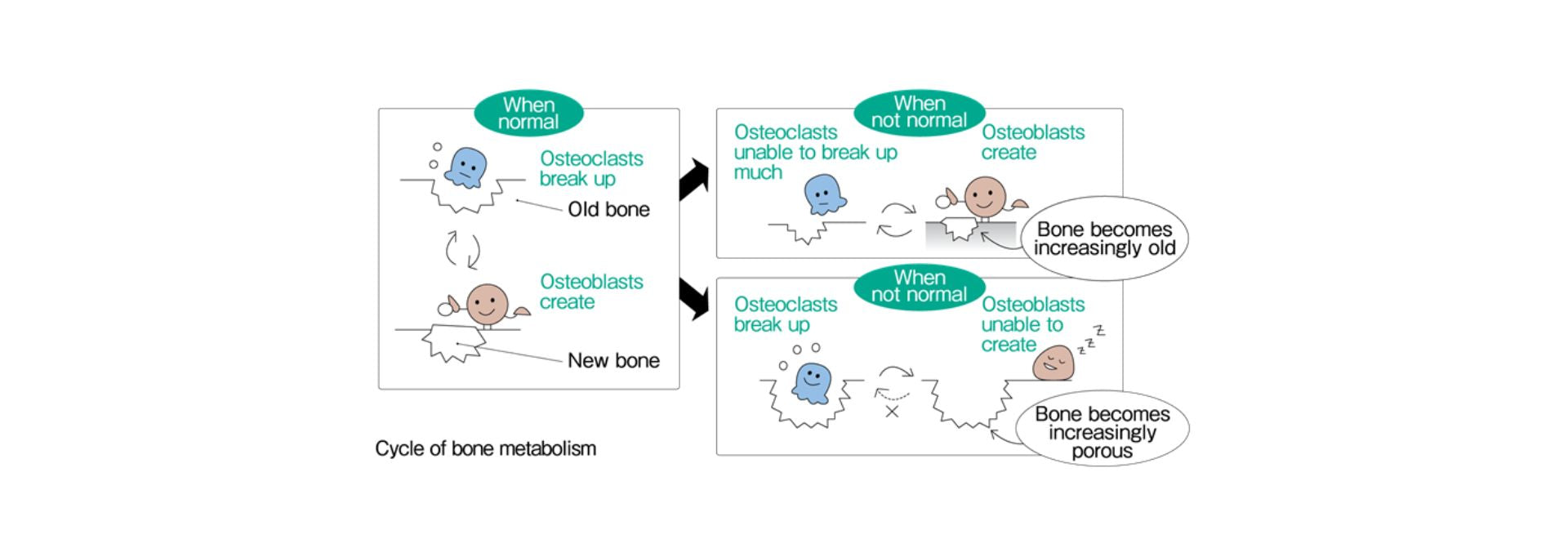
HOW COLLAGEN WORKS ON YOUR JOINTS
Structure of a joint
The surface of the bones at a joint is covered with highly moist cartilage, and this plays a cushioning role. Joint pain is caused as a result of a deterioration of the cushioning function of the cartilage. Ageing causes the cartilage to degenerate into a hard state, namely calcification; this makes the cartilage wear down, causing deformation of the bones as its foundation, and pain as a result.
Studies suggest that collagen peptides help to slow the ageing of articular cartilagesby delaying their degeneration. A study examining patients with Osteoarthritis taking collagen peptides at a daily dose of 10 gm over a period of 91 days demonstrated improvements in the comprehensive evaluation index as well as on the pain relief index for the knee joint.
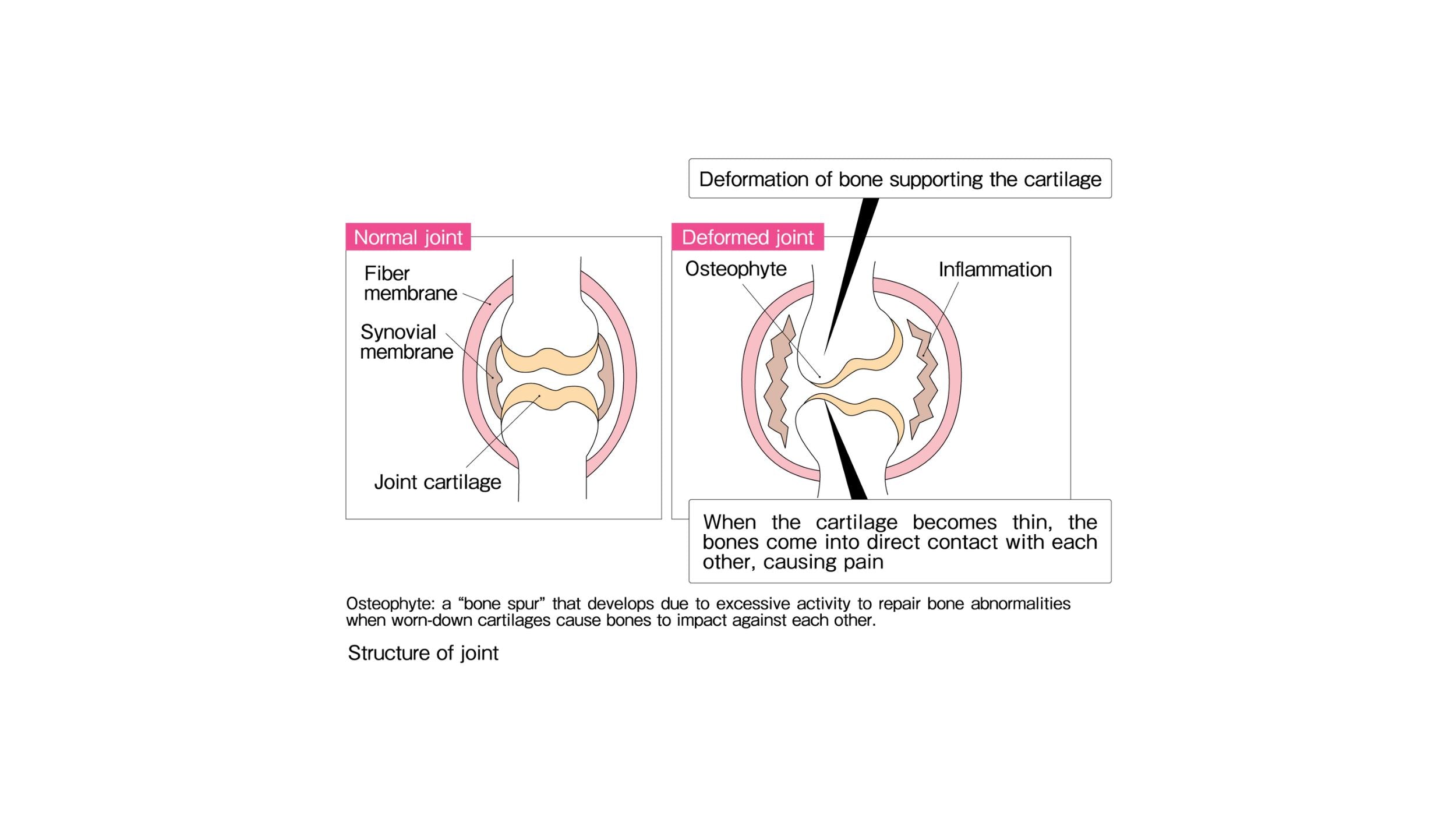
FIGHT LOCOMOTIVE SYNDROME WITH COLLAGEN
Locomotive Syndrome, a new lifestyle-related disease
Locomotive Syndrome refers to declines in the motor functions of muscles, joints and bones which can put affected individuals at high risk of eventually becoming bedridden. Locomotive Syndrome prevention comes down to two things: building muscle strength and strengthening the bone and joints. Muscles can be built up through training regardless of age. Rather than hard exercise, doing squats and balancing on one foot at a time, which you can do in your own home, are recommended.
While a well-balanced diet is obviously essential, collagen peptides also hold promise. Collagen has been shown in studies to promote the development of the foundation for robust bones, suppress wearing-down of the cartilage, and inhibit deterioration of subchondral bone. With their contributions to controlling muscle reduction and maintaining current condition, collagen peptides have the potential to produce synergic effects in combination with exercise to build strong bodies, as has been demonstrated in studies conducted on athletes. Another report suggests that collagen fibres become thicker in the Achilles tendon. It is thought that taking collagen peptides frequently in adequate amounts will help you “prepare” yourself to enjoy an active lifestyle over the coming years.

HOW TO TAKE COLLAGEN PEPTIDES EFFECTIVELY
-
Adequate daily intake
Studies to date have shown positive effects from taking collagen peptides at a daily dose of 10 gm for bone and joints, and 5 gm for the skin.
However, everyday foodstuffs contain very little collagen peptide. When we consume food, any collagen it contains will be degraded by the digestive enzymes in the body. And, while some may be absorbed as collagen peptides, it can be challenging to obtain as much as 5-10 gm of collagen peptides per day from normal meals alone. -
Use of supplements
For nutrients such as collagen peptides that are difficult to take in the required amounts based solely on a normal diet, it is recommended that you make use of supplements containing such nutrients, which are available in extract/concentrate forms for daily intake convenience.
-
Daily intake is the key
It has been found that after you ingest collagen peptides, they travel throughout your body via the bloodstream, issuing commands to the bones, joints and skin along the way. However, these commands are thought to dissipate in a matter of a day or two. To ensure efficient metabolism, it is necessary for commands to vitalize cells of the body to be issued continuously. To this end, it is important to develop a regimen of taking collagen peptides every day.
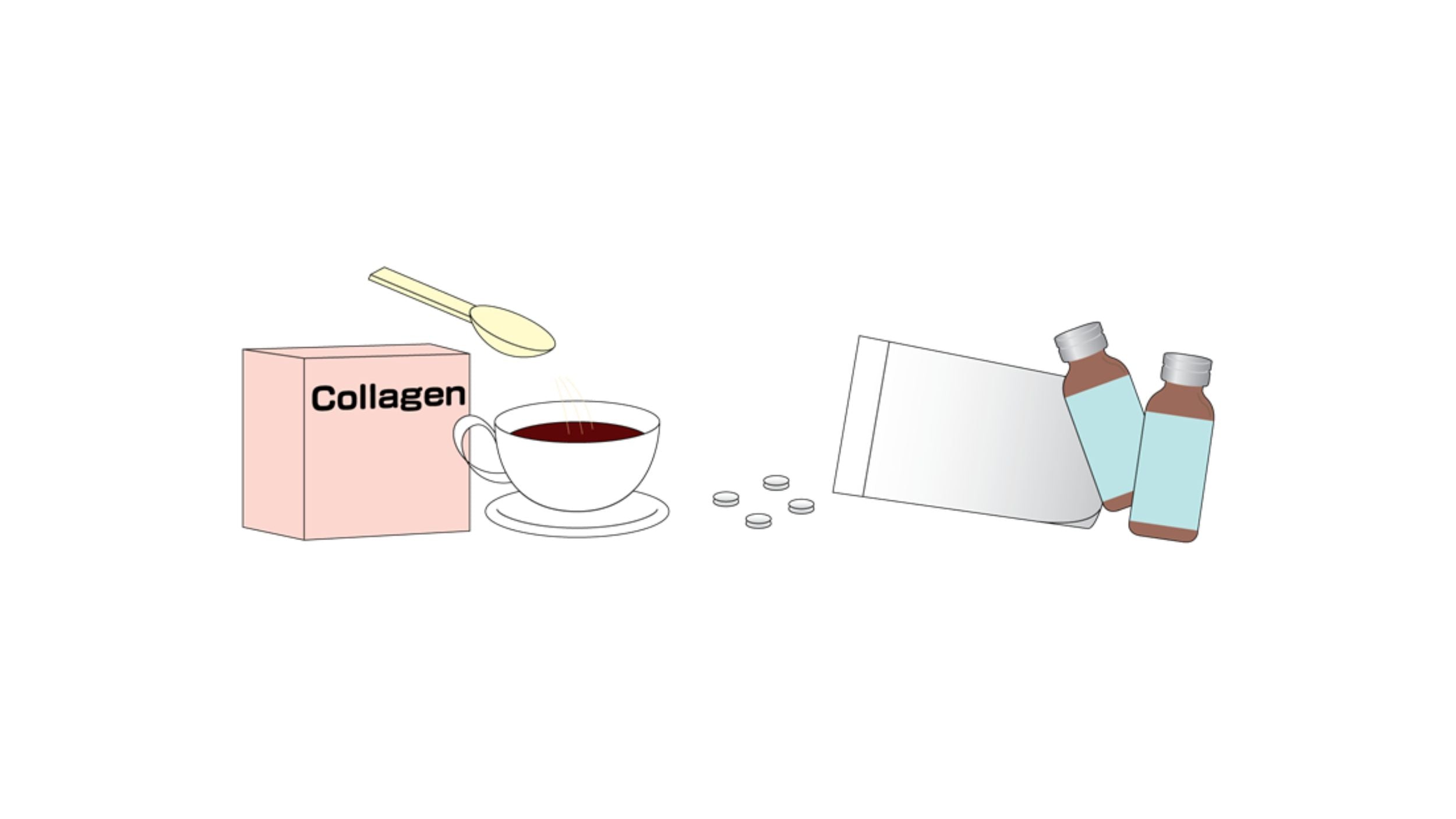
HOW TO SELECT GOOD COLLAGEN PEPTIDE
What makes a good collagen peptide?
With regard to collagen peptide supplements, the most important requirement is that peptides that act on the body get properly absorbed and reach the target cells. In ensuring this, what matters is not the raw materials and their molecular weights but the manufacturing methodology, such as how enzymatic degradation occurs.
That said, differences in manufacturing methods are not exactly simple for consumers to understand. Hence, it is very important to ascertain if the manufacturer of a particular supplement is reliable.
*This is a reproduction of modified contents of the Collagen Perfect Bible (by Hiroshi Mano, Gentosha Media Consulting.
Best Sellers
-
Gelixer Collagen Beauty (Orange flavor) 180 gm
Regular price ₹ 1,300.00Regular priceUnit price / per₹ 1,895.00Sale price ₹ 1,300.00Sale -
Gelixer Collagen Active (Mango flavor) 250 gm
Regular price ₹ 1,400.00Regular priceUnit price / per₹ 2,095.00Sale price ₹ 1,400.00Sale -
Gelixer Collagen Classic (Unflavoured) 180 gm
Regular price ₹ 1,100.00Regular priceUnit price / per₹ 1,695.00Sale price ₹ 1,100.00Sale -
Gelixer CollagenPep (Vanilla flavour) 150 gm - 10 gm each in 15 Sachets
Regular price ₹ 530.00Regular priceUnit price / per₹ 622.00Sale price ₹ 530.00Sale -
Gelixer CollagenPep (Orange flavour) 150 gm - 10 gm each in 15 Sachets
Regular price ₹ 530.00Regular priceUnit price / per₹ 622.00Sale price ₹ 530.00Sale

